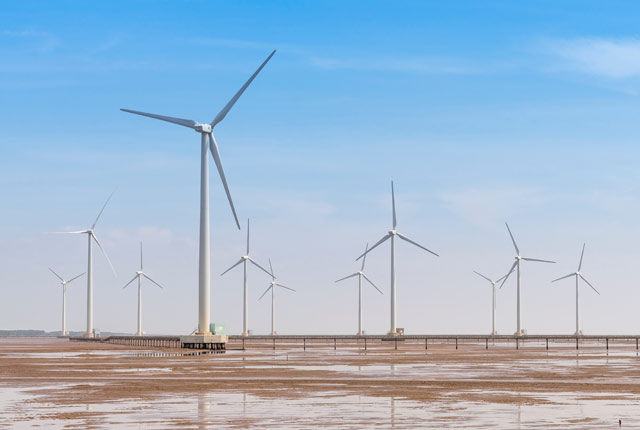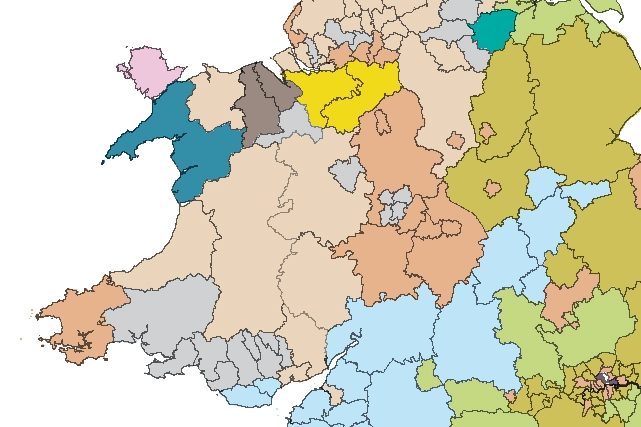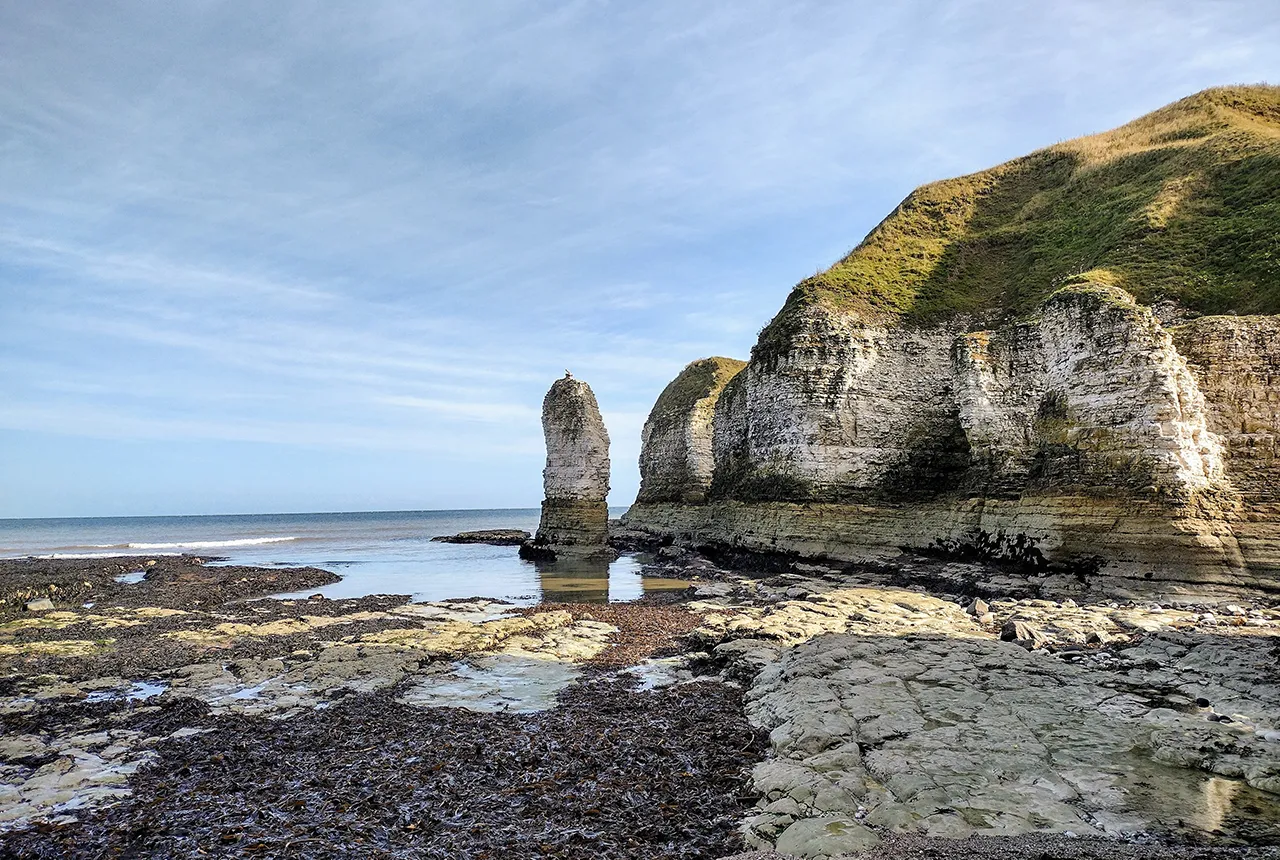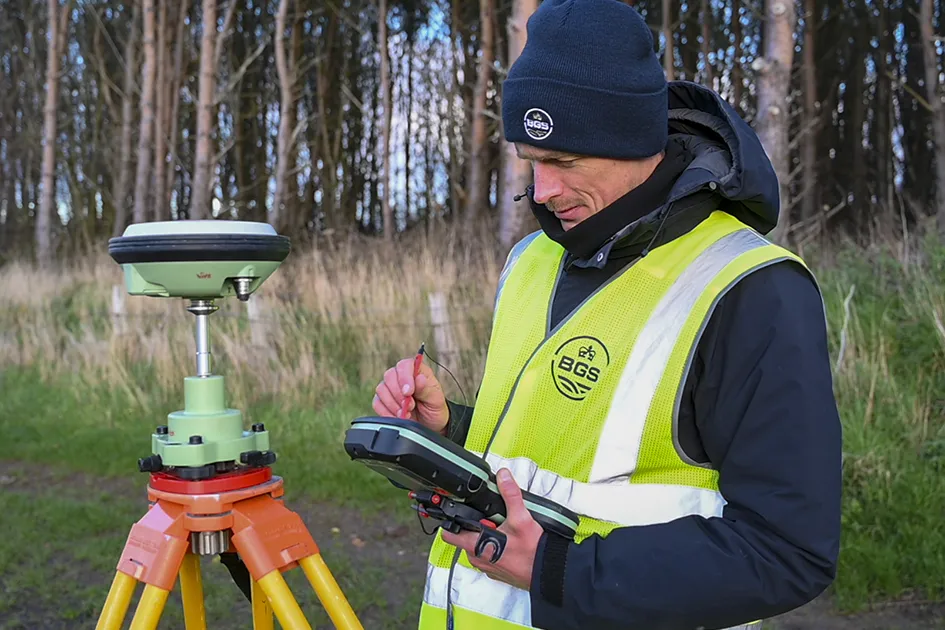BGS responds to Government’s ambitious Ten Point Plan for net zero transition
BGS has welcomed the Government’s Ten Point Plan for a Green Industrial Revolution which highlights the importance of geology and the ongoing need to support essential geoscientific research that will underpin the UK’s long term energy transition.
18/11/2020 By BGS Press
Clean hydrogen, carbon capture and storage (CCS), zero-carbon transport and offshore wind are all key pillars of the Prime Minister’s ambitious Ten Point Plan to drive the UK towards a net zero emissions target, which will be backed by £12 billion in Government investment and aims to create 250 000 new, ‘green’ jobs.
BGS, which provides expert and independent advice on key areas of geoscience, says that before meaningful progress can be made towards technologies required for decarbonisation, scientists rapidly need to advance their understanding of the subsurface.
The Prime Minister’s statement illustrates how important geology and geological technology is for the energy transition and for the commitment to net zero.
The underground plays a vital part in this agenda and it is very important that we don’t underestimate the efforts needed to achieve this.
We recommend more funding for research in this area, and policy and regulatory support to improve investor confidence and to encourage business to get involved and make a green industrial revolution a reality for the UK.
Our role in providing expert and independent advice on key areas of geoscience, places us in a unique position to work with partners in supporting the net zero agenda.
Dr Karen Hanghøj, BGS Director.
If we want to reach net zero by 2050, we need to focus on increasing our knowledge of the subsurface of the UK.
Geothermal energy, carbon capture and storage, hydrogen and subsurface heat storage are four technologies that could get the UK towards net zero.
We need more large-scale pilot and demonstrations of geothermal, CCS and subsurface heat and hydrogen storage so that we can make rapid advances in these fields.
Prof Mike Stephenson, BGS Chief Scientist for Decarbonisation and Resource Management.
To support this, BGS will continue to research the optimal use of the rocks under the seabed for carbon dioxide and hydrogen storage, as well as establish the geological foundations of the infrastructure we will need to realise this important endeavour – new platforms, new windfarms and new pipeline infrastructure.
Through the newly established £31 million UK Geoenergy Observatories along with the broader research community, BGS will research the extraction of geothermal heat from old coal mines and other buried rocks, as well as looking into storing industrial heat or summer heat below the surface, so that it can be used later.
To support the nuclear industry, BGS will research the safe and long-term disposal of radioactive waste in deep, secure underground vaults so that it will be safe for future generations, and so that the UK can benefit from low carbon, reliable baseload electricity.
BGS also welcomes the Government’s support to develop homegrown electric cars in the UK’s world-leading manufacturing centres in the West Midlands, north-east England and North Wales. As the UK’s national provider of information and data on metals critical for battery manufacture, the BGS will research both the prospects for metal extraction in the UK and the international security of supply of metals which can help to meet the demand for batteries and other low carbon technologies.
Relative topics
Related news

Map of BGS BritPits showing the distribution of worked mineral commodities across the country
18/02/2026
BGS’s data scientists have generated a summary map of the most commonly extracted mineral commodities by local authority area, demonstrating the diverse nature of British mineral resources.

Funding awarded to map the stocks and flows of technology metals in everyday electronic devices
12/02/2026
A new BGS project has been awarded Circular Electricals funding from Material Focus to investigate the use of technology metals in everyday electrical items.

New UK/Chile partnership prioritises sustainable practices around critical raw materials
09/02/2026
BGS and Chile’s Servicio Nacional de Geología y Minería have signed a bilateral scientific partnership to support research into critical raw materials and sustainable practices.

Extensive freshened water confirmed beneath the ocean floor off the coast of New England for the first time
09/02/2026
BGS is part of the international team that has discovered the first detailed evidence of long-suspected, hidden, freshwater aquifers.

Funding secured to help mitigate ground risk in UK construction sector
05/02/2026
The BGS Common Ground project has been awarded new funding to help unlock the value of ground investigation data.

Can sandstones under the North Sea unlock the UK’s carbon storage potential?
02/02/2026
For the UK to reach its ambitious target of storing 170 million tonnes of carbon dioxide per year by 2050, it will need to look beyond the current well-studied geographical areas.

Quaternary UK offshore data digitised for the first time
21/01/2026
The offshore wind industry will be boosted by the digitisation of a dataset showing the Quaternary geology at the seabed and the UK’s shallow subsurface.

Suite of ten new soil reference materials released
02/01/2026
BGS has a longstanding track record of producing high-quality reference materials and has released ten new soil reference materials.

Perth and Kinross tops the UK’s earthquake activity charts for 2025
29/12/2025
Seismologists at BGS have published data on the number of seismic events over the past 12 months with over 300 earthquakes recorded.

BGS awarded funding to support Malaysia’s climate resilience plan
17/12/2025
The project, funded by the Foreign, Commonwealth & Development Office, will focus on minimising economic and social impacts from rainfall-induced landslides.

New geological maps of the Yorkshire Wolds to better inform groundwater management and policy decisions
17/12/2025
The new mapping provides crucial data on localised geological issues that may assist in protecting water supplies.

‘Three norths’ set to leave England and not return for hundreds of years
12/12/2025
The historic alignment of true, magnetic, and grid north is set to leave England, three years after they combined in the country for the first time since records began.



